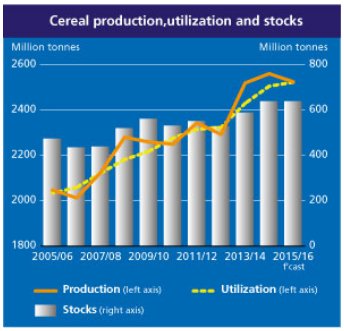
WebMD tells What You Need to Know about this condition. Delusions and Delusional Disorder. Excerpts in italics with my bolds.
Delusions are the main symptom of delusional disorder. They’re unshakable beliefs in something that isn’t true or based on reality. But that doesn’t mean they’re completely unrealistic. Delusional disorder involves delusions that aren’t bizarre, having to do with situations that could happen in real life, like being followed, poisoned, deceived, conspired against, or loved from a distance. These delusions usually involve mistaken perceptions or experiences. But in reality, the situations are either not true at all or highly exaggerated.
People with delusional disorder often can continue to socialize and function normally, apart from the subject of their delusion, and generally do not behave in an obviously odd or bizarre manner. This is unlike people with other psychotic disorders, who also might have delusions as a symptom of their disorder. But in some cases, people with delusional disorder might become so preoccupied with their delusions that their lives are disrupted.
What Are the Complications of Delusional Disorder?
- People with delusional disorder might become depressed, often as the result of difficulties associated with the delusions.
- Acting on the delusions also can lead to violence or legal problems. For example, a person with an erotomanic delusion who stalks or harasses the object of the delusion could be arrested.
- Also, people with this disorder can become alienated from others, especially if their delusions interfere with or damage their relationships.
Treatment most often includes medication and psychotherapy (a type of counseling). Delusional disorder can be very difficult to treat, in part because those who have it often have poor insight and do not know there’s a psychiatric problem. Studies show that close to half of patients treated with antipsychotic medications show at least partial improvement.
Delusional disorder is typically a chronic (ongoing) condition, but when properly treated, many people can find relief from their symptoms. Some recover completely, while others have bouts of delusional beliefs with periods of remission (lack of symptoms).
Unfortunately, many people with this disorder don’t seek help. It’s often hard for people with a mental disorder to know they aren’t well. Or they may credit their symptoms to other things, like the environment. They also might be too embarrassed or afraid to seek treatment. Without treatment, delusional disorder can be a lifelong illness.
An example of CDD
H.Sterling Burnett and James Taylor write at Epoch Times United Nations Misleads About Food Production and Climate Change. Excerpts in italics with my bolds
There is no better way to describe the arguments contained in the U.N. Intergovernmental Panel on Climate Change’s (IPCC) new report, “Climate Change and Land,” released just in time to influence discussions at the United Nations’ 68th Civil Society Conference. Citing anecdotal evidence instead of hard data, IPCC’s new report paints a dark, disturbing picture about the current and future state of crop production and food availability.
“Climate change, including increases in frequency and intensity of extremes, has adversely impacted food security and terrestrial ecosystems as well as contributed to desertification and land degradation in many regions,” the report claims.
“Warming compounded by drying has caused yield declines in parts of Southern Europe. Based on indigenous and local knowledge, climate change is affecting food security in drylands, particularly those in Africa, and high mountain regions of Asia and South America,” the report continues.
Here, climate alarmists in the United Nations are doing nothing more than “pounding the table,” hoping fear will drive the public to demand “climate action now!”
Of course, the fake news media eagerly amplified the alarmist report. For example, an Aug. 8 NBC News headline reads, “Climate change could trigger a global food crisis, new U.N. report says.” Many other major media outlets published similar stories.
The biggest problem is the report’s thesis and “facts” are totally wrong—and that’s quite a problem!
For instance, the United Nations’ own data shows farmers throughout the world are setting new production records virtually every year. In fact, the U.N. Food and Agriculture Organization reports new records were set in each of the past five years for global cereal production, which is composed of the Big Three food staples: corn, wheat, and rice.

Indeed, World-Grain.com reports in 2016 world cereal production broke records for the third straight year, exceeding the previous record yield, recorded in 2015, by 1.2 percent and topping the record yield in 2014 by 1.5 percent. These facts should not surprise anyone because hundreds of studies and experiments conclusively demonstrate plants do better under conditions of higher carbon dioxide and modestly warmer temperatures.
The ongoing record crop production perfectly illustrates the difference between the Climate Delusion perpetrated by IPCC and other government-funded alarmists and what is actually happening in the real world. To make the news gloomy, IPCC’s report nefariously engages in semantic tricks to give readers a false impression of declining global crop production. The report cites anecdotal evidence crop yields are declining in “parts” of Southern Europe, ignoring copious data showing crop yields are rising across the globe, including throughout Southern Europe.
Instead of highlighting this welcome development, IPCC focuses on what it claims are yield reductions in some small regions of Southern Europe. Readers who are not paying close attention will be led to believe, incorrectly, that crop yields are declining throughout Southern Europe. In reality, the exact opposite is true!
IPCC claims “indigenous and local knowledge” indicates food production is declining “in drylands” in Africa, Asia, and South America. However, such indigenous and local knowledge does not trump objective data, which are readily available to IPCC’s authors and show crop yields are increasing throughout Africa, Asia, and South America as a whole, including in dryland areas.
Tragically, IPCC’s misleading claims result in people who dare to point out crop production continues to set new records being accused of “denying” climate change and attacking science. Climate change is real and record crop production is in fact consistent with it. In fact, record crop production is partly due to climate change.
This is just the latest example of the ongoing Climate Delusion, as radical environmental activists, government bureaucrats, socialists, and a biased news media, looking to transform U.S. society, repeatedly make ridiculous climate claims with no basis in real environmental conditions. They hope the constant drumbeat of authoritative-sounding claims will fool people into stampeding politicians to give governments more power over the economy to combat the false climate crisis.
Fortunately, we can avoid this fate. Factual data showing the truth about global food supplies and other climate conditions are readily available to anyone willing to search the internet. Let’s hope the public accesses the facts. Enacting policies that restrict the use of abundant energy supplies will rob people of choice and harm the economy. This won’t hurt the global elite, but it will result in everyone else living poorer, more precarious lives.

See also Alarmists Anonymous




Excellent review.
LikeLike
Reblogged this on Climate Collections.
LikeLike
So TRUE Ron, food production an inconvenient fact. Luv the AL Gore Cartoon.
The will to deceive and the will to believe, …do not be embroiled in the matador’s red cape.
LikeLike
Reblogged this on Climate- Science.press.
LikeLike